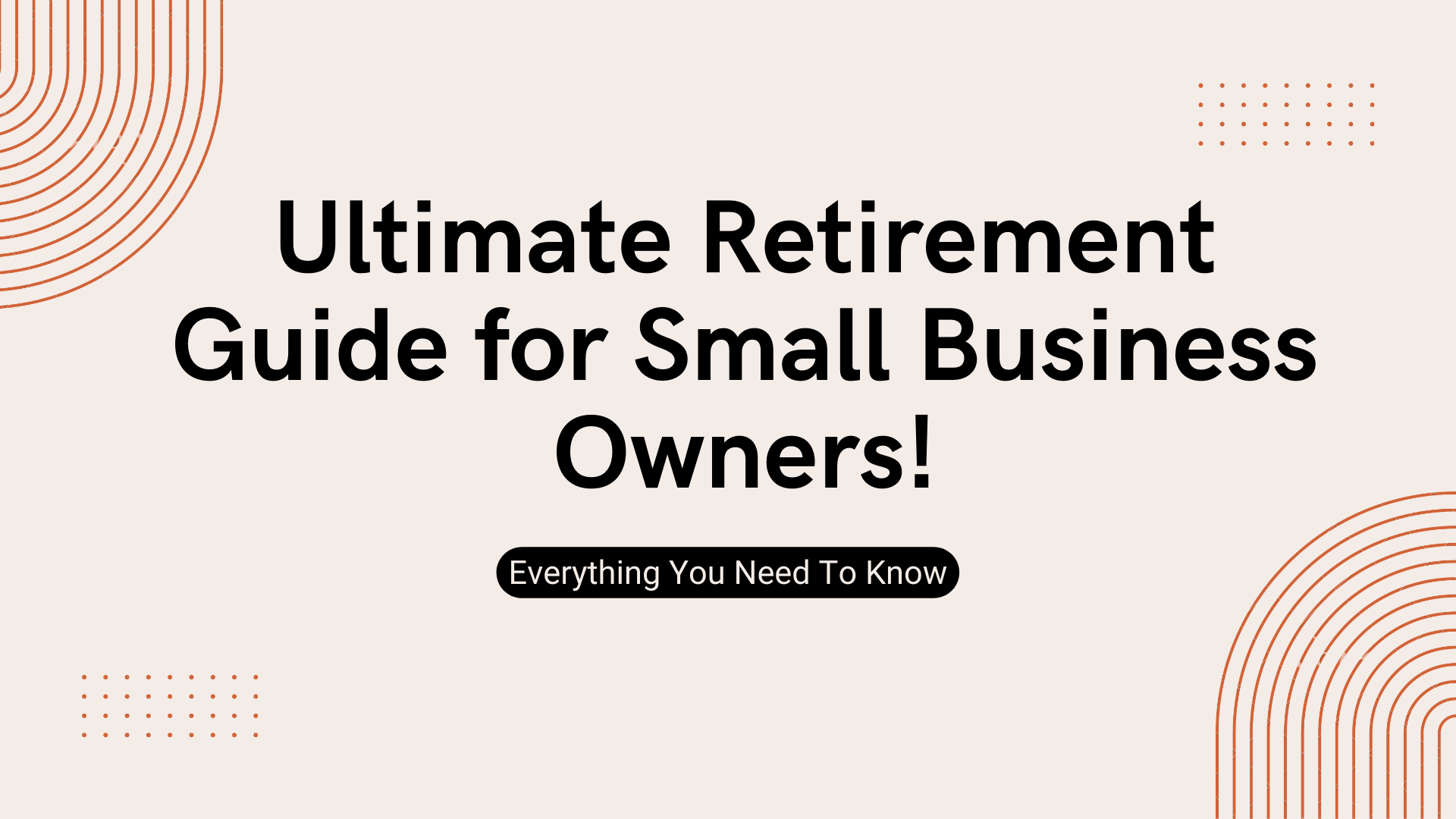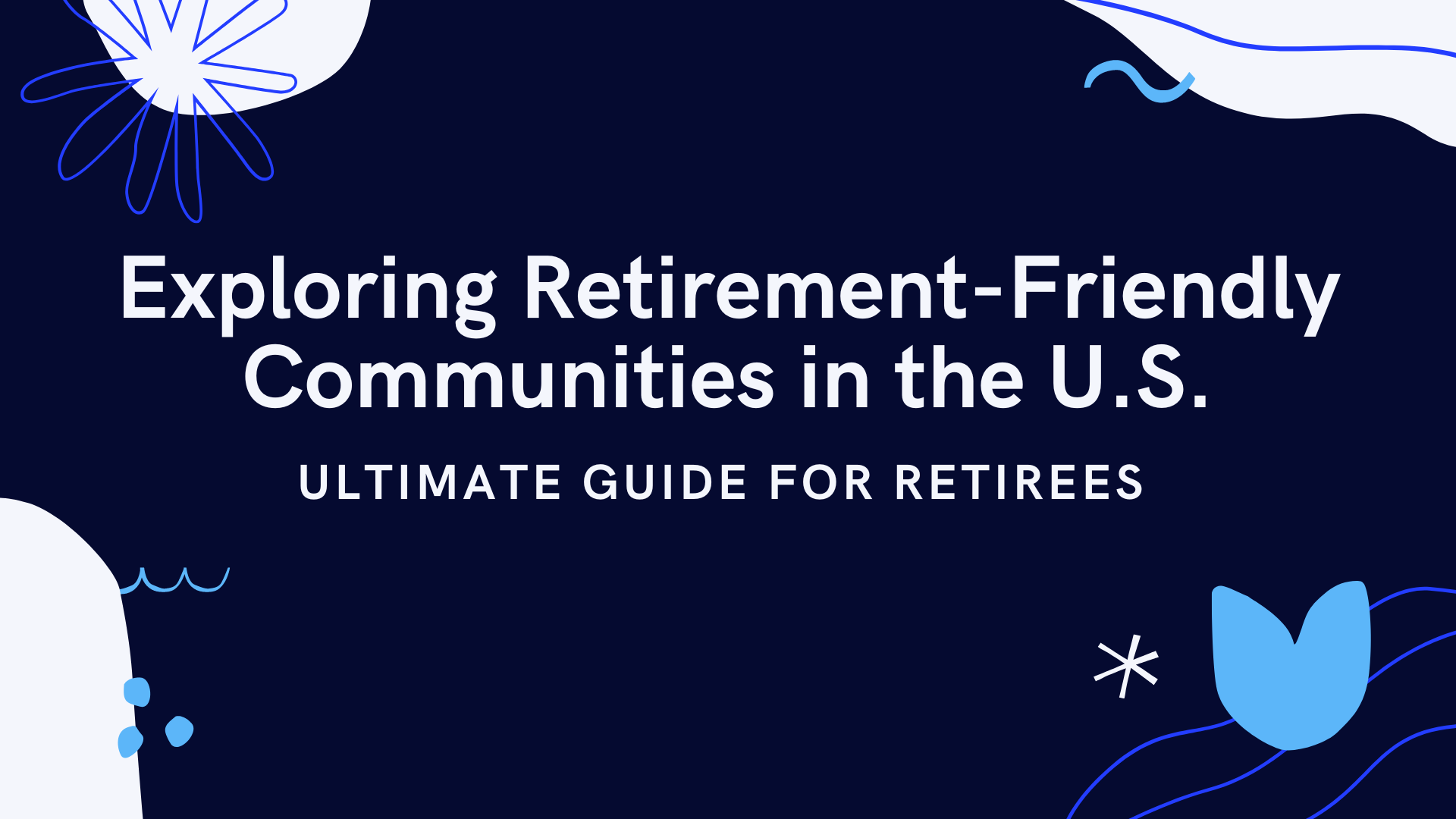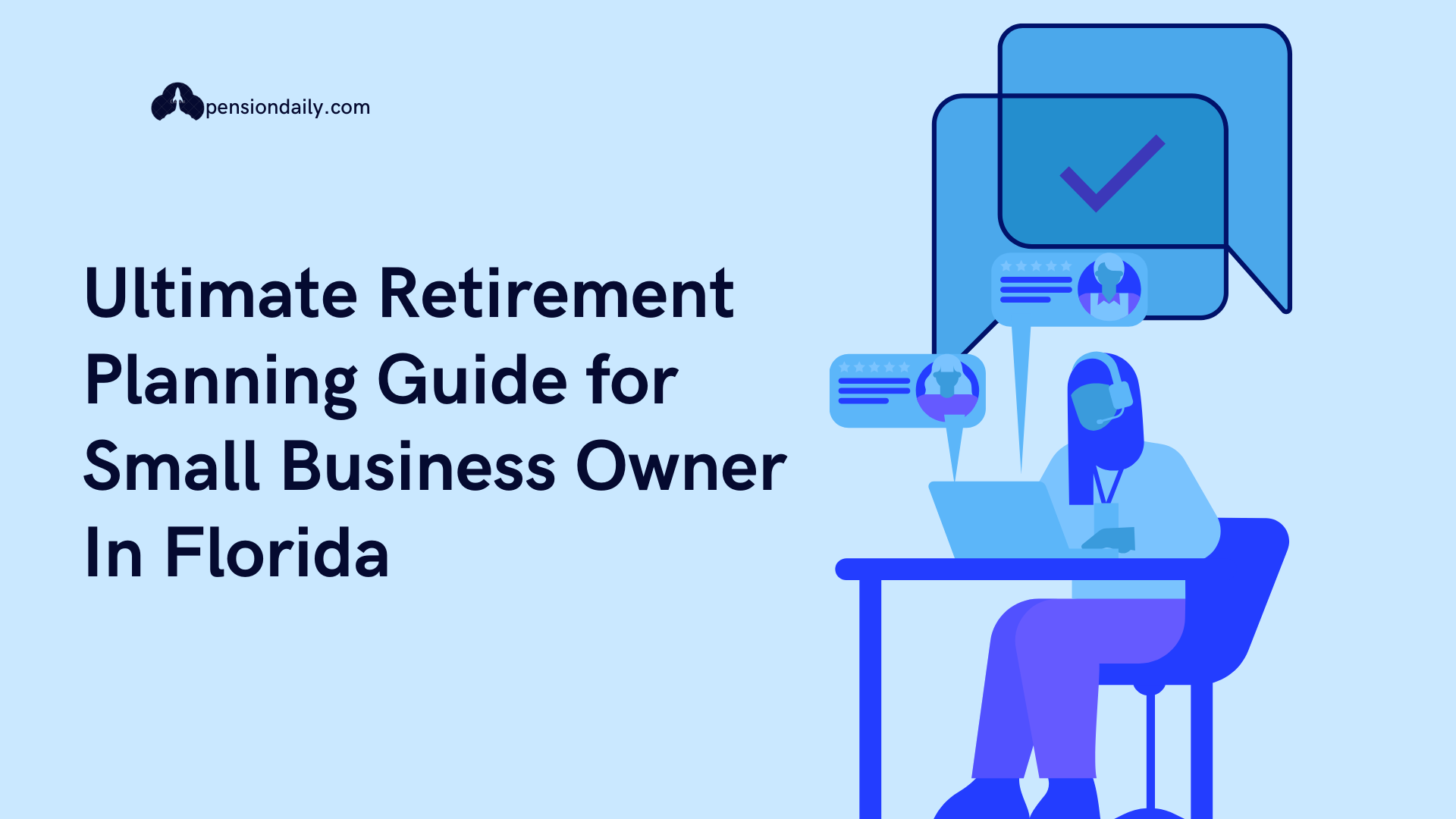Ultimate Retirement Guide for Small Business Owners!

While some workers benefit from a pension plan or a supplemental pension plan, this is not the case for most small business owners. It is you who must plan your future and deter
Table of Contents
- How soon would you like to retire?
- What lifestyle do you want to have in retirement?
- How Should a Small Business Owner Save for Retirement?
- What Is the Best Retirement Plan for a Small Business Owner?
- What type of business can set up a Small Business 401(k)?
- How do I set up a small business 401(k)?
- How do you choose a 401(k) provider?
- Will offering a retirement plan to my Employees be good for my business?
- What Happens When a Small Business Owner Retires?
- Do Small Business Owners Get Social Security When They Retire?
- Final thoughts
mine how you will finance your retirement. Here are four questions to help you plan for your retirement.
Don’t worry, and you are not alone. More than three-quarters of small business owners do not have a retirement plan, either for themselves or for their employees.
Review these frequently asked questions to learn how to set yourself up for a comfortable retirement:
How soon would you like to retire?
It is a good starting point to plan your future. Even if you have only an idea of when you will retire, the important thing is to have a retirement plan to achieve. This will help you think about the number of years you want to continue working, what you would like to do after retirement, and how much you can save by then.
There are many factors to consider, such as your physical, financial, health, the date that is best for you, your family, or anyone else you plan to retire with.
What lifestyle do you want to have in retirement?
It is important to consider the kind of lifestyle you want in retirement when determining the amount you will need to take full advantage of it. Consider how often you would like to travel and ask yourself if you would like to volunteer or stay home. Retiring does not mean that you have to stop working completely. You could assign certain responsibilities, work part-time, or act as a consultant while your successor becomes familiar with the business’s inner workings.
How Should a Small Business Owner Save for Retirement?
There are some ways small business owners can save for retirement:
Individual retirement accounts (IRAs)
IRAs for small business owners are a type of retirement account that you can set up on your own. Small business owner IRA options include traditional and Roth IRAs. Traditional IRAs allow you to defer taxes on contributions and pay taxes when you withdraw the money in retirement. Roth IRAs are funded with after-tax dollars, but withdrawals in retirement are tax-free.
Simplified employee pension (SEP) IRA
A SEP IRA retirement plan lets self-employed individuals and small business owners contribute to retirement plans for themselves and any employees. The contribution limits are higher than for traditional and Roth IRAs.
Solo 401(k) plan
A Solo 401(k) plan is a retirement plan for self-employed individuals with higher contribution limits than traditional or Roth IRAs. The business owner can contribute both as an employee and employer, making it a popular choice for small business owners.
Profit-sharing plans
Profit-sharing plans allow employers to contribute a portion of the company’s profits to employees’ retirement accounts.
Simple IRA
A Simple IRA is a retirement plan for small businesses. Employers can make contributions on behalf of their employees, and employees can make contributions through salary deferrals.
What Is the Best Retirement Plan for a Small Business Owner?
The best retirement plan for you as a small business owner depends on various factors, such as the size and type of the business, the number of employees, and your financial goals.
You’re advised to have either 403(b), SIMPLE IRA, SEP IRAs or solo 401(k) plan depending on your preferences.
What type of business can set up a Small Business 401(k)?
Whether you are a sole proprietorship, LLC or nonprofit, you can offer a retirement program. If you are a Sole Proprietorship, you can open a Solo 401(k) plan which allows you to bypass the Form 5500 provided the account is below $250,000.
With the most common types of business offering retirement plans being LLC or Corporations. 1099 employees are not eligible to contribute towards a 401(k) plan. W-2 and other compensation that is subject to payroll taxes (Social Security and Medicare) will be eligible to contribute towards the 401(k).
How do I set up a small business 401(k)?
There are several factors involved when setting up a 401(k) plan as a business owner. we would first determine why you are wanting to open a 401(k) plan. Is it for the employer's benefit? The employees benefit.? Or both?
Once that's determine, you will want to decide what type of 401k plan you will be offering. Specifically, what your plan design will look like. It really depends on if you are able to offer a company match or not. If you are, the Safe Harbor 401(k) option is suitable and very popular for small businesses.
If you are not looking to offer an employer contribution, the Traditional 401(k) will be the best option.
How do you choose a 401(k) provider?
Choosing a 401k provider can be overwhelming, time consuming and confusing. Since there are many providers to choose from, bear in mind that not all providers will offer the same services or prices.
Some 401(k) plan providers will cater more to smaller companies, while others are set up for medium-sized or large businesses. There are usually three providers involved in a 401k which are Financial Advisor, Third Party Administrator and Record keeper.
Will offering a retirement plan to my Employees be good for my business?
As any small business owner will attest, It’s become even harder during the Great Resignation and when the unemployment rate is near historic lows.
Small businesses need to appeal to job seekers now more than ever. Research shows that in a competitive hiring environment, offering retirement benefits attracts job seekers.
Eighty-six percent of workers value a 401(k) or similar retirement plan, and 75 percent of new hires at a company offering a 401(k) say a retirement plan provides a compelling reason to stay. So there’s a strong opportunity to gain a competitive advantage as an employer.
What Happens When a Small Business Owner Retires?
When a small business owner retires, ownership of the business must be transferred or sold to a new owner. The process of transferring ownership depends on its legal structure. Also read Retirement Planning Mistakes: Must Know For Everyone
If the business is a sole proprietorship, you can sell or transfer ownership to a family member, friend, or third-party buyer. Alternatively, the business can be liquidated, and the assets sold off to pay off any remaining debts.
You can sell your share of a partnership-based business or LLC to the remaining partners or to a third-party buyer. The partnership agreements should outline the process for transferring ownership.
If the business is a C or S corporation, you can sell your shares of stock to the remaining shareholders or to a third-party buyer if approved by the board of directors and shareholders.
Do Small Business Owners Get Social Security When They Retire?
Yes, small business owners are eligible for Social Security benefits when they retire. Social Security benefits are available to all workers who have paid into the system through payroll taxes.
The amount of Social Security benefits a small business owner will receive in retirement depends on their earnings history and the number of years they worked and paid into the Social Security system. To qualify for Social Security retirement benefits, a small business owner must have earned a certain number of credits by working and paying Social Security taxes over the course of their career.
Final thoughts
Selecting the right investment options for your retirement portfolio requires careful consideration of factors such as risk tolerance, time horizon, and financial goals. By diversifying your investments across a range of suitable options like stocks, bonds, mutual funds, real estate, and more, you can build a resilient and prosperous retirement portfolio.



